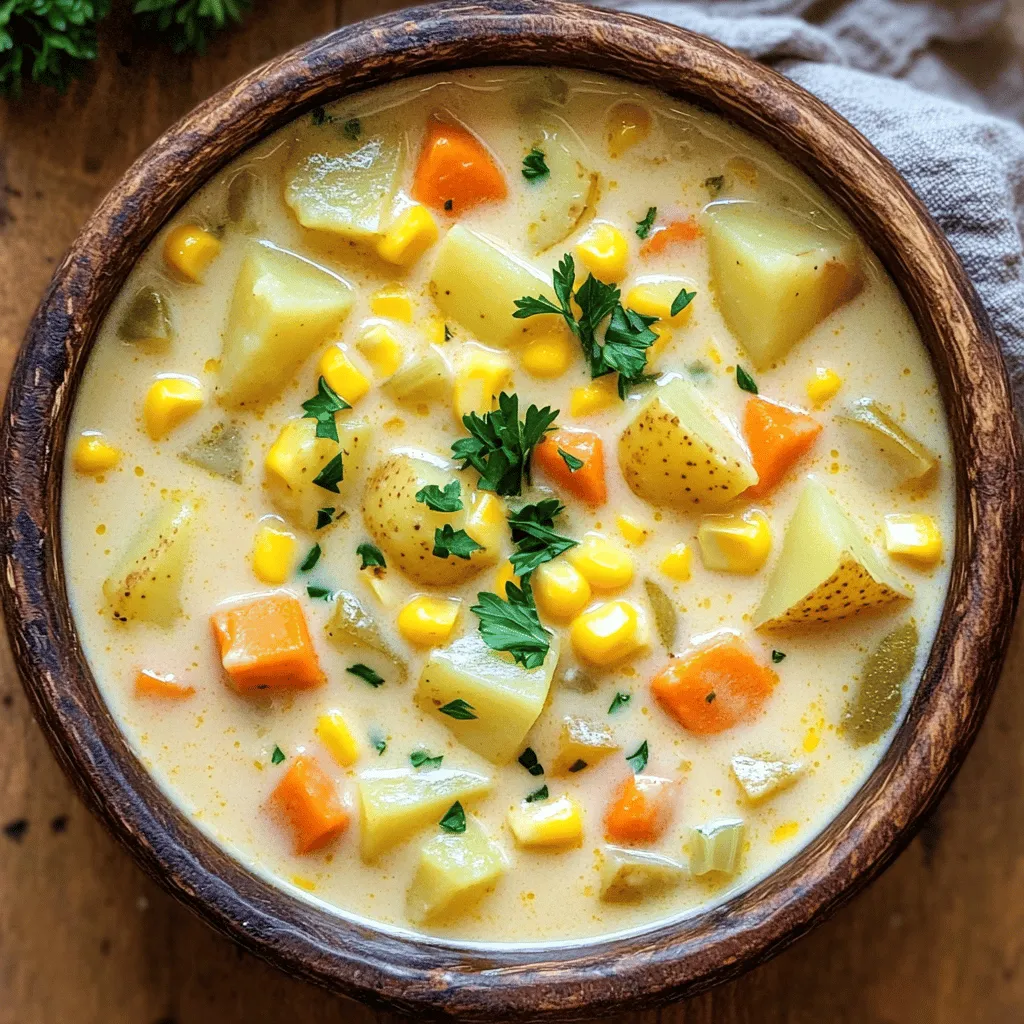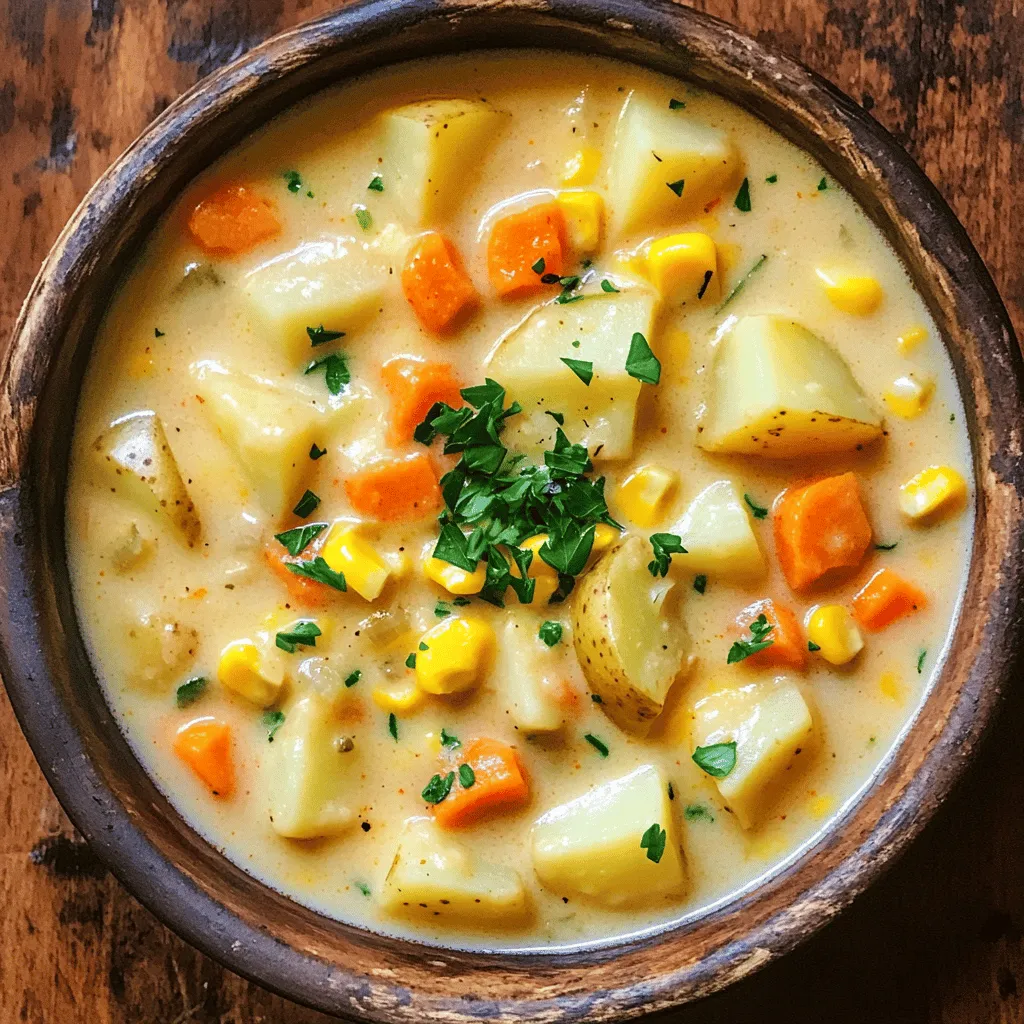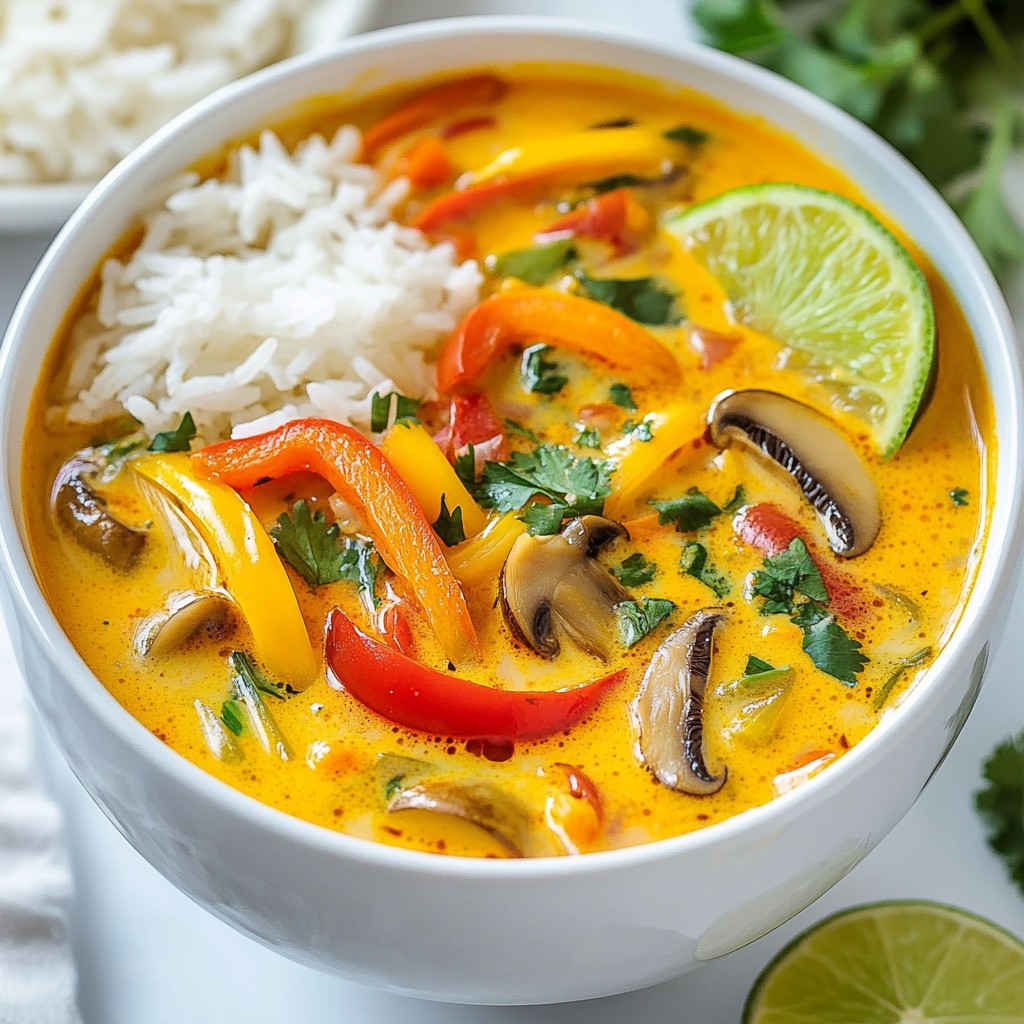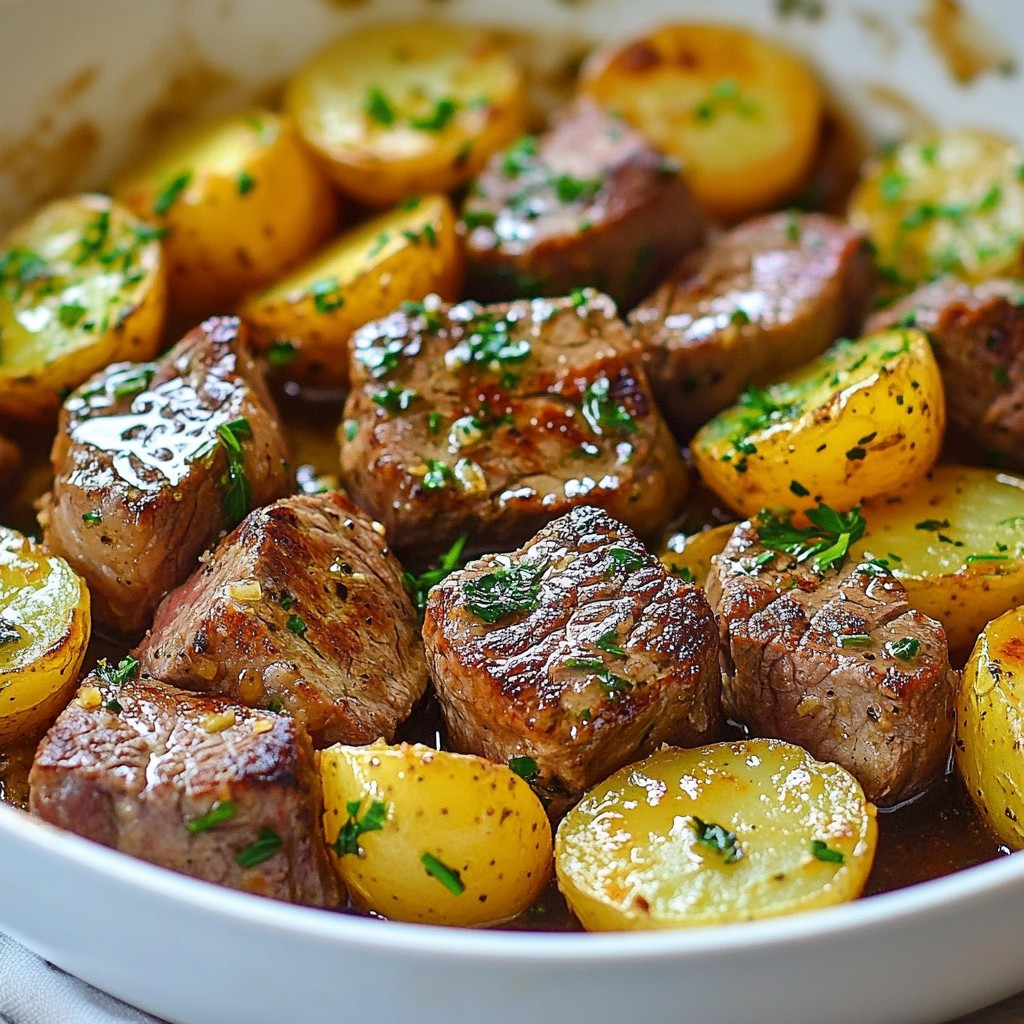Craving a warm, hearty meal? My Slow Cooker Creamy Vegetable Chowder is the perfect choice! Packed with flavorful vegetables, herbs, and spices, this dish warms you up and fills you up. Plus, it lets your slow cooker do all the hard work. In this guide, I’ll share the easy steps and tasty variations to make this comforting chowder your own. Let’s dive in and start cooking deliciousness!
Ingredients
Main Ingredients
To make this chowder, you will need:
– 4 cups vegetable broth
– 2 cups diced potatoes
– 1 cup chopped carrots
– 1 cup corn kernels (fresh or frozen)
– 1 cup diced celery
– 1 cup chopped onion
– 2 cloves garlic, minced
These main ingredients create a base full of flavor and nutrition. The vegetable broth provides a savory depth, while the potatoes and carrots add heartiness and sweetness. Corn brings a pop of texture, and the onion and garlic give a lovely aroma.
Spices and Seasoning
To flavor the chowder, gather:
– 1 teaspoon dried thyme
– 1 teaspoon dried oregano
– 1/2 teaspoon smoked paprika
– Salt and pepper to taste
Spices are key in this recipe. Thyme and oregano add warmth, while smoked paprika brings a hint of smoke that enhances the chowder’s taste. Don’t forget to season with salt and pepper for balance.
Optional Add-ins
For added creaminess and flavor, consider:
– 1 can (15 oz) coconut milk
– 1 tablespoon olive oil
– Chopped fresh parsley for garnish (optional)
Coconut milk gives the chowder a rich, creamy texture. Olive oil adds healthy fat and flavor, while parsley brightens the dish when sprinkled on top. Feel free to use these optional ingredients to make it your own!
Step-by-Step Instructions
Preparing the Vegetables
To start, I heat olive oil in my slow cooker on the sauté setting. I add chopped onion, minced garlic, and diced celery. I cook these for about 3-4 minutes. This brings out their sweet flavors. Once they soften, I stir in diced potatoes, chopped carrots, and corn. These veggies add heartiness and color to the chowder.
Combining Ingredients
Next, I pour vegetable broth over the vegetables. This broth is the base of our chowder, giving it depth. I mix in dried thyme, oregano, smoked paprika, salt, and pepper. This step is key for layering flavors. I make sure everything is well combined.
Cooking Instructions
Now, I cover the slow cooker. I set it to low for 6-7 hours or high for 3-4 hours. Low heat allows the flavors to develop fully. High heat is great when I need it faster. I check the vegetables for tenderness before adding coconut milk. This adds creaminess and completes the chowder.
Tips & Tricks
Enhancing Flavor
To make your chowder more exciting, try adding spices like cumin or rosemary. A pinch of cayenne can add heat if you like it spicy. For toppings, consider shredded cheese or crispy bacon bits. Fresh herbs like chives or cilantro also bring a fresh twist.
Slow Cooker Best Practices
Layering ingredients is key. Start with the harder veggies, like potatoes and carrots. Next, add softer ones, like corn and celery. This helps them cook evenly. Always keep the lid closed while cooking. Each time you lift it, you lose heat and extend cooking time.
Adjusting Consistency
Do you prefer a thicker chowder? You can mash some of the potatoes after cooking. For a creamier texture, add more coconut milk. If you want to sneak in extra veggies, chop them small and stir them in. Spinach or zucchini works great!

Variations
Vegetarian and Vegan Options
To make this chowder a vegetarian or vegan delight, swap out the vegetable broth for a rich, homemade or store-bought vegan broth. For creaminess, I recommend using almond milk or soy cream in place of coconut milk. These alternatives keep the dish light while still providing a wonderful texture.
You can also add legumes like lentils or chickpeas for a protein boost. They cook well in the slow cooker and add a nice bite to the chowder. Try adding one cup of cooked beans or lentils just before serving.
Make it Spicy
If you crave heat, add chopped hot peppers or a dash of cayenne pepper. This will give your chowder a kick! Always taste as you go to get the heat just right.
For an extra layer of flavor, serve with spicy condiments like sriracha or a spicy pesto. These can elevate each bowl and let you customize the heat level for each person.
Seasonal Variations
Using seasonal vegetables can enhance the flavor and freshness of your chowder. In spring, add peas or asparagus. In fall, consider using butternut squash or sweet potatoes for a sweeter taste.
Adjust the cooking time based on your veggies. For example, softer vegetables like zucchini need less time than sturdier potatoes. Just keep an eye on your chowder and taste during cooking to ensure everything is tender and delicious.
Storage Info
Refrigerating Leftovers
To store your chowder, let it cool first. Then, pour it into a clean container. Make sure the lid seals tightly. This keeps the chowder fresh. It lasts in the fridge for about 3 to 4 days. If you want to reheat, just warm it on the stove or in the microwave. Stir well before serving.
Freezing Instructions
If you want to save chowder for later, freezing is a great choice. Use a freezer-safe container. Leave some space at the top for the chowder to expand. It can last in the freezer for up to 3 months. When ready to eat, thaw it in the fridge overnight. Then, reheat it on the stove. Add a little water or broth if it seems thick.
Reusing Leftovers
Don’t throw away leftover chowder! You can make new meals. Try using it as a sauce for pasta. Or, pour it over baked potatoes. You can also make a vegetable casserole. For storage, use airtight containers. Glass containers work well. They keep the chowder fresh and are easy to clean.
FAQs
Can I make Slow Cooker Creamy Vegetable Chowder without coconut milk?
Yes, you can. If you want to skip coconut milk, use regular milk or cream instead. For a dairy-free option, try almond milk or oat milk. These alternatives will still give your chowder a nice, creamy texture. You can also blend some cooked potatoes into the chowder for added creaminess.
How can I make this chowder heartier?
To make your chowder more filling, add protein-rich foods. You could toss in cooked beans like chickpeas or navy beans. Adding cooked chicken or ham also works well. For extra veggies, consider adding spinach or kale. Serve the chowder with crusty bread or a side salad for a full meal.
Is it possible to use frozen vegetables?
Yes, frozen vegetables are great for this recipe. They can save you prep time. Just toss them in the slow cooker as you would fresh ones. No need to thaw them first. Keep an eye on the cooking time, as frozen veggies may cook faster than fresh ones.
This article covered how to make a tasty slow cooker vegetable chowder. You learned about key ingredients like broth, veggies, and spices. I shared tips for flavor, cooking times, and storage. You can also explore variations to match your taste and dietary needs. Now, you have the tools to create a warm, hearty dish that’s easy to prepare. Enjoy making this chowder and feel free to experiment as you go!




